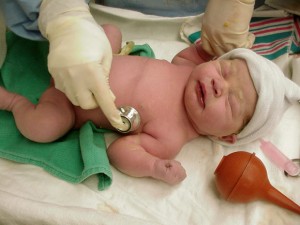When a prospective client in a divorce matter comes in, often they have already been served with a Complaint for Divorce that has been filed by their spouse. Beyond discussing the substantive issues of their case, they will inquire about the Complaint itself, what it means, and the need to respond to it. Back in the “good old days”, unless the parties had already been separated for 18 months, a Complaint for Divorce had to allege some sort of “fault” as the grounds for the divorce, i.e. extreme cruelty, adultery or desertion being among the most common. Continue reading ›
Awards of Counsel Fees in Matrimonial Actions in New Jersey
One consideration that comes up in almost every divorce action is the question of whether a spouse can request that the other spouse pay their counsel fees. Awards of counsel fees in New Jersey matrimonial cases are completely up to the discretion of the judges, and the Appellate Division generally will not reverse such decisions unless the judge abused his/her discretion. Eaton v. Grau, 368 N.J. Super. 443, 454 (App. Div. 2006). Judges’ discretion is not entirely unfettered, however, because judges still must address the standards set forth in the statutes, rules and case law. Continue reading ›
New Jersey Appellate Division Case Upholding Award of Negligent Infliction of Emotional Stress Damages Illustrative As to the Issue of Marital Torts
In the landmark case of Merenoff v. Merenoff, 76 N.J. 535 (1978), the New Jersey Supreme Court overturned the doctrine of interspousal immunity, which prevented one from suing one’s spouse for injuries proximately caused by the conduct of that spouse. Later, in the case of Tevis v. Tevis, 79 N.J. 422,(1979), the Supreme Court held that “that the abolition of the doctrine [of interspousal immunity] pertained to tortious conduct generally encompassing not only conventional negligence but also intentional acts, as well as other forms of intentional behavior such as gross negligence, recklessness, wantonness, and the like.” The law on interspousal torts further was developed in the case of Giovine v. Giovine, 284 N.J.Super. 3, 13 (App.Div. 1995), where the Appellate Division recognized the right of a spouse to sue the other spouse under the tort of intentional infliction of emotional distress where the measure of damages was not dependent upon physical injury to the plaintiff, but could be established through competent evidence showing the perpetrator’s’s outrageous or otherwise actionable conduct. Continue reading ›
Pension Valuations and the Election of Survivorship Benefits
In any and all cases where a pension is to be equitably distributed between the parties, there are two questions that a family law practitioner must always consider: (1) How is the pension going to be valued and istributed; and (2) Are survivor benefits going to be elected for the non-pensioner spouse? The recently published decision in Evans-Donahue v. Donahue, which was drafted by the Honorable Steven J. Polansky, J.S.C., provides much needed insight into the answering of each of those questions when it comes to the equitable distribution of pensions. Continue reading ›
New Jersey Appellate Division Allows Consideration of Violation of Civil Restraints When Considering New Claims of Domestic Violence
New Jersey’s Prevention of Domestic Violence Act (DVA) was designed to protect victims of serious domestic disputes from the dangers inherent in continued contact with a domestic abuser. Toward that end, the DVA envisions a Final Restraining Order that protects the victim from most contact with the abuser, and imposes criminal consequences to an abuser who violates a final domestic violence restraining order. Sometimes, the practicalities of trying to resolve complex litigations as well as the need to co-parent minor children lead to the dismissal of a Temporary or Final Domestic Violence Restraining Order and the protections of the DVA for the less pervasive protections of an ordinary civil order or judgment. Continue reading ›
When Does Child Support End? – Shifting the Burden
If divorcing parties have children, the support of these children is one of the issues that needs to be addressed. In the majority of cases the “amount” of child support is fairly easy to determine – the incomes of most families fall within the range covered by the Child Support Guidelines; a formula established by Court Rule. The next question I am frequently asked (usually by the payor parent) is for how long does this child support need to be paid – usually followed by the comment: “To 18 right, since this is considered the age of majority?” Continue reading ›
New Jersey Court Allows a Mother to Bar the Child’s Putative Father From the Delivery Room
 In a November, 2013 decision published on March 10th of this year, in what appears to be the first decision of its kind not only in New Jersey but in the United States, a Superior Court judge in the matter of Plotnick v. Delucca held that an expectant mother is not required to notify the child’s father when she goes into labor, nor is she required to allow him into the delivery room to witness the child’s birth. Continue reading ›
In a November, 2013 decision published on March 10th of this year, in what appears to be the first decision of its kind not only in New Jersey but in the United States, a Superior Court judge in the matter of Plotnick v. Delucca held that an expectant mother is not required to notify the child’s father when she goes into labor, nor is she required to allow him into the delivery room to witness the child’s birth. Continue reading ›
The Rachel Canning Case: Can Married Parents Be Forced to Pay College Expenses the Way that Divorced Parents May Be Obligated?
United States Supreme Court Justice Sandra Day O’Connor wrote on behalf of the Court in the case of Troxel v. Granville, 530 U.S. 57 (2000), that “the interest of parents in the care, custody, and control of their children — is perhaps the oldest of the fundamental liberty interests recognized by this Court.” Justice O’Connor went on to cite other decisions like Meyer v. Nebraska, 262 U.S. 390 (1923), wherein the Court recognized “that the ‘liberty’ protected by the Due Process Clause includes the right of parents to ‘establish a home and bring up children’ and ‘to control the education of their own.’” Continue reading ›
custody, and control of their children — is perhaps the oldest of the fundamental liberty interests recognized by this Court.” Justice O’Connor went on to cite other decisions like Meyer v. Nebraska, 262 U.S. 390 (1923), wherein the Court recognized “that the ‘liberty’ protected by the Due Process Clause includes the right of parents to ‘establish a home and bring up children’ and ‘to control the education of their own.’” Continue reading ›
New Jersey Appellate Division Further Examines the Issue of Inconvenient Forums in Custody Cases
In a recently published opinion, dated February 19, 2014, the Appellate Division analyzed and reversed a trial court’s decision declining to  exercise jurisdiction pursuant to New Jersey’s version of the Uniform Child Custody Jurisdiction and Enforcement Act (commonly referred to as UCCJEA). In this particular case, designated S.B. v. G.M.B., the trial court made a determination to decline jurisdiction, in favor of the courts of Ontario, Canada, despite the fact that this relief was not specifically requested by either party. Continue reading ›
exercise jurisdiction pursuant to New Jersey’s version of the Uniform Child Custody Jurisdiction and Enforcement Act (commonly referred to as UCCJEA). In this particular case, designated S.B. v. G.M.B., the trial court made a determination to decline jurisdiction, in favor of the courts of Ontario, Canada, despite the fact that this relief was not specifically requested by either party. Continue reading ›
Entry of Default Judgment Requires Fairness in New Jersey
 Recently trial Judge L.R. Jones, J.S.C., an effective and prolific writer, explored the procedures to be followed when pursuing a default judgment. If a defendant does not file an answer or appearance within the thirty-five days after a divorce complaint is filed and lawfully served upon him or her, the plaintiff may file a request to enter default. Continue reading ›
Recently trial Judge L.R. Jones, J.S.C., an effective and prolific writer, explored the procedures to be followed when pursuing a default judgment. If a defendant does not file an answer or appearance within the thirty-five days after a divorce complaint is filed and lawfully served upon him or her, the plaintiff may file a request to enter default. Continue reading ›
 New Jersey Divorce and Family Lawyer Blog
New Jersey Divorce and Family Lawyer Blog









